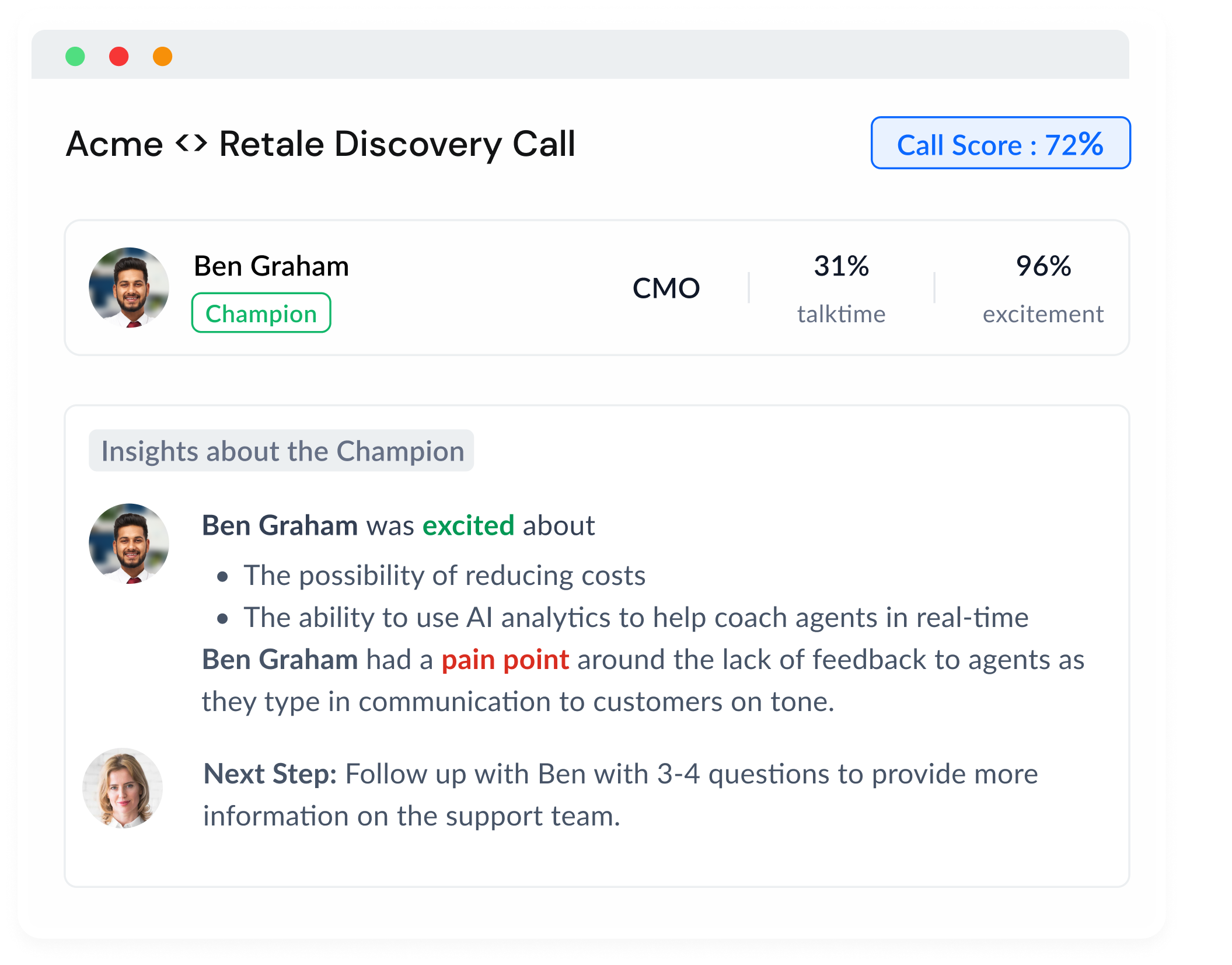If the sales industry were a movie, it'd be a mashup of 'The Pursuit of Happyness', 'Glengarry Glen Ross', and, well, probably 'Iron Man' too. The high-pressure targets, the robotic precision needed to be Iron Man-like efficient, and the constant fear of losing out on the big deal can make sales reps feel as if they’re stuck in an endless case of the Mondays. But here's a plot twist: mental health doesn’t take days off. It's a 24/7, 365-show that runs in the background of our chaotic sales environments.
Yes, mental health in sales is as real as the repetitive 'just checking in' emails you send to leads. It's the silent conversation that often gets overshadowed by revenue forecasts, quotas, CRM updates, and, cold calling. So, as you sip on your third coffee of the day, contemplating how to close that next big deal, let’s also talk about closing the deal on mental health.
Supportive Work Environments: Not Just An Office Perk
Think back to the last time you resolved a conflict by snapping your fingers à la Thanos. Can't recall it, can you? That's because in reality, it doesn't work like our favorite superhero flicks. Creating a supportive work environment isn’t a case of "one snap to rule them all"—it's an ongoing process, an art to be mastered.
In a supportive work atmosphere, open conversations about mental health should be as normal as discussing sales targets. Not being in top mental shape, after all, won’t stop your deal from closing, just the way Hulk never stopped fighting Thanos, even in his not-so-green state. Spoiler Alert: It’s the camaraderie and support that helped our Avengers to victory, not just their superpowers.
But why does it matter? To put it plainly, our brains need TLC (tender, loving, care) too. A supportive work environment helps boost team morale, improve productivity, and more importantly, it ensures your sales reps are taken care of – both on and off the sales floor.
Dollar Bills and Pills: The True Cost of Ignoring Mental Health
Allow me a moment to play 'Captain Obvious' here – Ignoring mental health issues is like ignoring that wonky wheel on your office chair. It might not bother you today, you might even roll around your desk pretending you’re in a Fast & Furious stunt scene, but over time, it's going to get worse and may even end up in a spectacular wipeout down the office hallway.
The World Health Organization has pinned the cost of depression and anxiety on the global economy at a staggering $1 trillion per year in lost productivity. In the sales universe, where performance pressure and stress are as constant as Thor's love for his hammer, the cost might be even higher.
Remember Ben Franklin’s wise words, ‘An ounce of prevention is worth a pound of cure’? Sure, he wasn’t talking about mental health, but we can apply this wisdom to our topic, too. Engaging openly with mental health issues, promoting awareness and understanding, can save financial strains and more importantly, the ocean of stress it puts on your team.
To quote Spiderman, "With great power, comes great responsibility.” Sales leaders and HR managers, you are our Avengers. Igniting the conversation around mental health should be your next 'Endgame'.
Making ‘Out of Office’ Mean 'In Good Health': Implementing Workplace Wellness Programs
Think wellness programs, and the first image that pops into your mind is probably yoga mats, bowls of fruits, and gym memberships. But workplace wellness is like an onion - layered and may end up making you cry if you slice it wrong. It involves more than just physical wellness; it equally focuses on mental and emotional health.
Workplace wellness programs can be as straightforward as a weekly team huddle just to check in on each other, to more complex initiatives like professional mental health support. Appointing mental health champions, creating safe spaces for conversation, providing access to mental health resources are just some ways to do it right.
Sales is a rollercoaster ride. One minute you're radiating victory because you just nailed a hard-close, next minute, you might be wallowing in self-doubt because of an unforeseen ‘no.’ Encouraging an environment where it's okay not to be okay is pivotal. For that, wellness programs can be a great start.
The truth is, workplace wellness matters. And it's not just a trend that you can 'ghost' like a flaky lead. It's a journey best teamed with a trusted companion, something like your AI assistant - Sybill.
Asking a Machine for Help
Now, I know what you're thinking. How can an AI like Sybill help sales teams support their mental health? I see those skeptical faces. But bear with me here, because although Sybill might not have a PhD in Psychology, it's got the goods to support your sales teams in ways you might not have considered.
For starts, Sybill helps alleviate some common sales stressors. Missed follow-up? Sybill got your back. CRM fields not updated? Sybill takes care of it. Spending too much time on mundane tasks? Sybill to the rescue. Imagine taking off sales-related chores from your plate, and suddenly, you have more time to focus on your clients, a quick wellness break, or simply not feeling rushed off your feet. Doesn't that sound like a mini-vacation in itself?
Moreover, Sybill aids in optimizing sales processes, helping your reps to work smarter, not harder. And you know what they say about being productive - it's a mood booster! By providing data-driven recommendations, Sybill empowers salespeople. It's like having a personal assistant that boosts your confidence - who wouldn't want that?
Lights, Camera, Action: It's Time To Implement!
By now, I hope we have successfully 'sold' you on the importance of mental health within your sales team. It's about as essential as a good WiFi connection at a virtual conference. If you take away one thing from this post, let it be this: mental health matters. And it's something that needs to be taken care of, spoken about, and fostered in our work environments, just like any other aspect of your sales strategy.
Remember, you don't need a Time Stone to make a change. The journey to a healthier, happier sales team starts now, and every small initiative counts. So, put on your superhero capes, sales leaders and HR managers, and let's get started.















.png)




